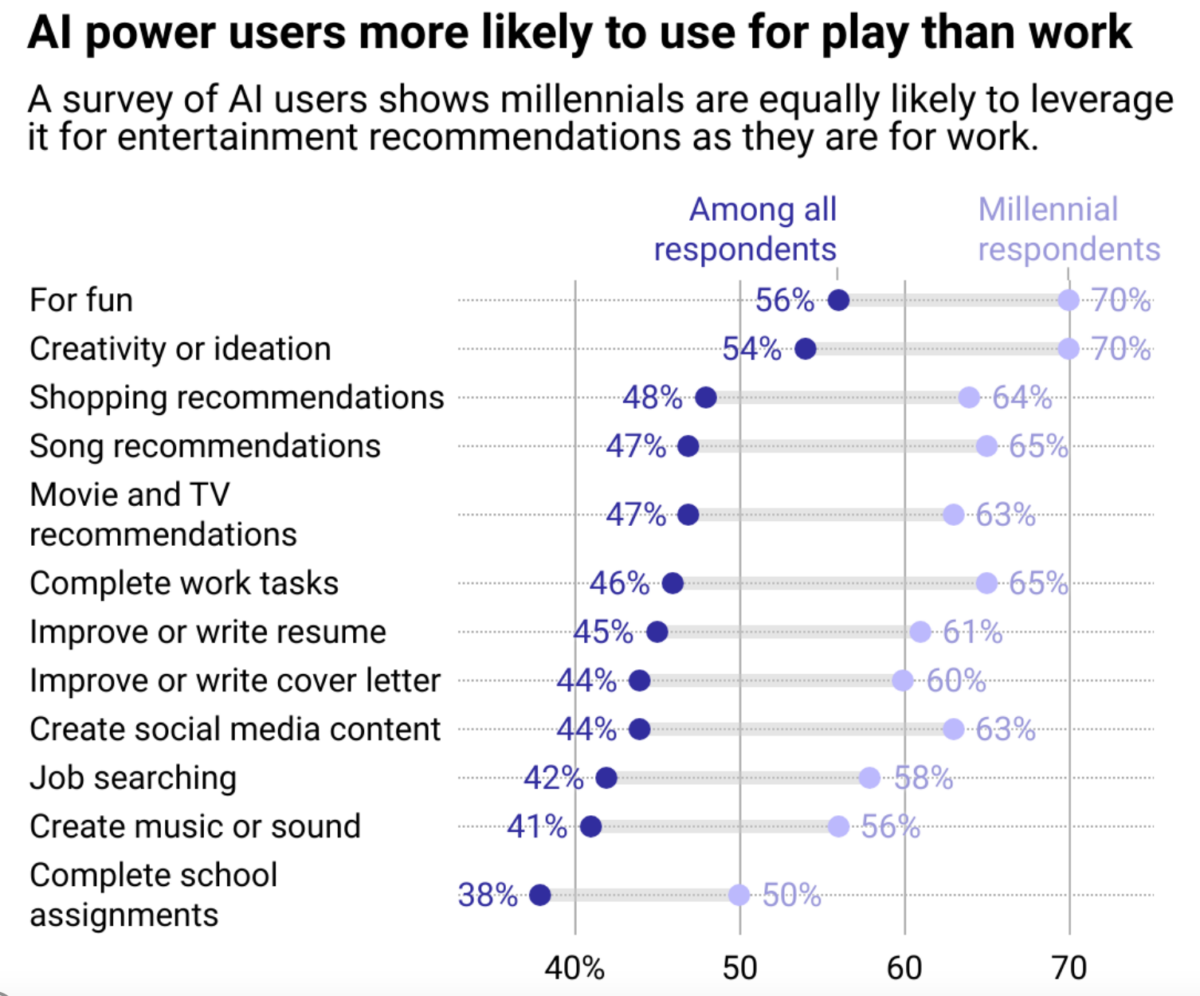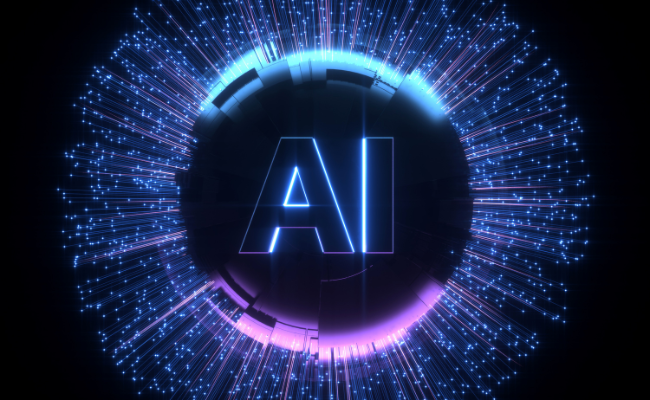Millennials are the largest adopters of AI tools—for fun, not work

Photo Illustration by Elizabeth Ciano // Stacker // Shutterstock AI Generator
Artificial intelligence is seeing traction among the largest generational contingent in the US workforce: millennials. And they may not be using it just to boost productivity at work.
Verbit analyzed Morning Consult survey data published in 2024 to illustrate how millennials interact most with emerging AI tools. Morning Consult polling suggests millennials are more active users of AI tools than even Gen Z. Respondents said they are about 20 percentage points more likely to use AI for work tasks when compared with overall user responses. But they also indicated they’re slightly more likely to use it for leisure or creative pursuits than work.
AI is found today not just in the generative AI chatbots like ChatGPT that have invaded workplaces and popular culture. It’s also embedded in the algorithms that power recommendations in music and television streaming apps, financial investment services, productivity software like Microsoft Excel, conversation transcription tools, and those that assist in writing code.
With more than a year of experimentation under their belts since the release of ChatGPT and the wave of AI software that followed, the appeal to millennials of using new AI-infused software for work is nearly on par with using it for entertainment recommendations.

Note: Data based on responses from 830 adults who reported using AI, selected from a nationally representative pool of 2207 people.
Data source: Morning Consult, 2024
By Dom DiFurio
Millennials make up the bulk of the workforce and are AI’s early power users
True artificial intelligence, called artificial general intelligence or AGI, refers to software that displays a level of intelligence indistinguishable from that of a human. Experts agree that true AI is a ways off. However, today’s AI-infused software is still powerful enough to significantly augment workers in many white-collar jobs—and even replace them in some limited cases like customer service functions.

Artificial intelligence is seeing traction among the largest generational contingent in the US workforce: millennials. FILE PHOTO
Millennials’ equal propensity to use AI for entertainment or work may speak to the entertainment consumption habits of those aged 28-43. But, it could also be representative of the anxiety the proliferation of new AI tools has caused in the larger workforce.
While not yet capable of AGI, the current capabilities of AI have thus far been strong enough to generate significant apprehensiveness about job displacement. White-collar work was long thought to be immune from early forms of automation, which mainly displaced manual labor jobs with the assistance of robotic technology in warehouses and on factory floors.
And even though polling indicates nearly half of AI’s current users are leveraging the tools at work, other indicators show it hasn’t come without compounded stress.
About two-thirds of workers say they are concerned about AI replacing their jobs, and an equal portion say they fear falling behind in their jobs if they don’t use it at work, according to a 2023 survey developed by Ernst & Young to gauge worker anxiety around business’ adoption of AI.
While the future of AI—and how big of a threat it poses for workers—remains to be seen, a new report from corporate advisory firm Gartner provides an optimistic view running counter to worker anxiety. The 2024 report forecasts that generative AI adoption within corporate workplaces could slow in the coming years as organizations are hit with the reality of the costs it requires to fully train AI models, as well as the looming intellectual property challenges making their way through courts.
Story editing by Nicole Caldwell. Copy editing by Kristen Wegrzyn.
This story originally appeared on Verbit and was produced and distributed in partnership with Stacker Studio.
This article has been re-published pursuant to a CC BY-NC 4.0 License

